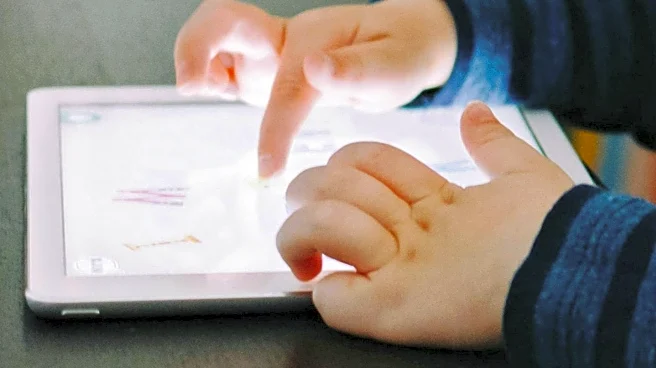What's Happening?
A study from Pediatric Research indicates that one of the strongest predictors of a child's screen time is their parents' screen time. NPR's Life Kit explores how parents can set a positive example for technology use in the home. Jean Twenge, a psychology
professor, suggests being intentional with technology use, designating specific functions for devices, and creating device-free zones. The study emphasizes the importance of parents modeling balanced technology habits to influence their children's screen time.
Why It's Important?
The study underscores the significant role parents play in shaping their children's screen time habits. As concerns about excessive screen time and its impact on health and development grow, this research highlights the need for parents to be mindful of their own technology use. By setting a positive example, parents can help mitigate potential negative effects of screen time on children, promoting healthier habits and interactions. This insight is crucial for developing effective strategies to address screen time concerns in families.
What's Next?
Parents may consider implementing strategies such as device-free zones and intentional technology use to manage screen time in their households. Educators and policymakers could use this research to develop programs and resources that support families in fostering healthy technology habits. The study may prompt further research into the long-term effects of parental screen time on children's development and well-being.
Beyond the Headlines
The findings raise broader questions about the cultural and societal implications of technology use in family dynamics. It highlights the need for a balanced approach to technology, considering its benefits and potential drawbacks. This research may contribute to ongoing discussions about digital literacy and the role of technology in modern parenting.


















